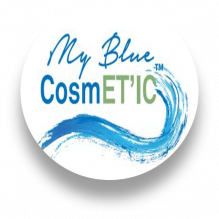
Development of standardised toxicity tests on corals for marine safety assessment of UV-filters and other cosmetic ingredientsAjoutez votre titre ici
Current Position: Department of Product Safety, Regulatory Ecotoxicology, BASF SE, Ludwigshafen, Germany focusing on the environmental safety of cosmetic ingredients, pharmaceuticals, biocides, food and feed additives.
Career:
Until 2002: University of Heidelberg, studies of biology; diploma and PhD thesis related to aquatic ecotoxicology
Until 2003: University of Basel, Post Doc, Programm Mensch, Gesellschaft, Umwelt
Until 2006: IBACON, Head of the Ecotoxicology Laboratory
Since 2006: BASE SE, Regulatory Ecotoxicologist at the Department of Product Safety
Since 2008: BASF SE, Team lead, Regulatory Ecotoxicology Chemicals
Global warming is a known widespread threat to coral health as it leads to local and global coral bleaching and is associated with coral mass mortality. Other factors that have been identified in posing risks to coral reefs, although more on a local level, including overfishing, costal erosions, wastewater effluents and pesticides. Recently, the use of UV filters in sunscreen products has been discussed as additional risk factor for corals. Initial research indicates that certain UV filters in sunscreen can harm coral life; however, these results may be considered controversial due to other studies demonstrating the absence of any adverse effects. This may cause uncertainty when it comes to regulatory actions and measures leading to the ban of UV filters in various countries around the globe, especially, since regulatory decisions should rely on scientifically sound data using validated and standardized testing methods (see also REACH regulation). To support the current regulatory need for coral protection, both acute and chronic toxicity tests on various coral life stages are under development, which are deemed suitable for further validation during international acknowledged ring test trials (i.e. DIN, ISO, OECD, etc.). Available results from coral larval tests (48 hours) indicate that both metamorphosis and mortality are suitable endpoints, whereas for acute (4 days) toxicity tests with coral fragments, mortality the loss of fluorescence (as a measure for symbiotic algae health) can be used. Additional chronic toxicity tests using adult coral fragments are currently under development; however, the validation process of all these tests may requires additional time. To enable a selection of the most ecofriendly UV filters in sunscreen products, the EcoSun Pass (ESP) tool can be used as an interim method. Although the test systems and evaluation methods for adequate UV filters are currently developed. These ecotoxicological tests along with the ESP tool may also be applicable to other cosmetic ingredients likely to enter the marine environment and thus contribute to the aim of improving global coral reef environments.
